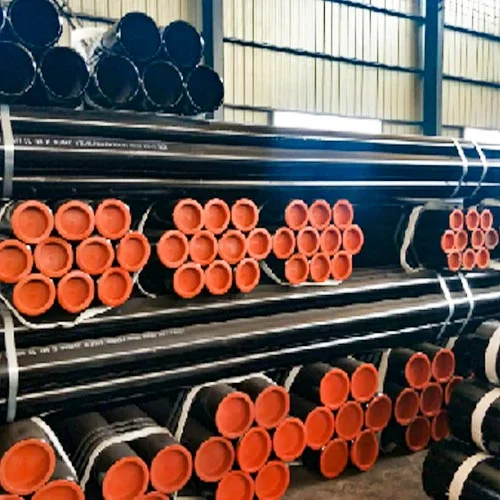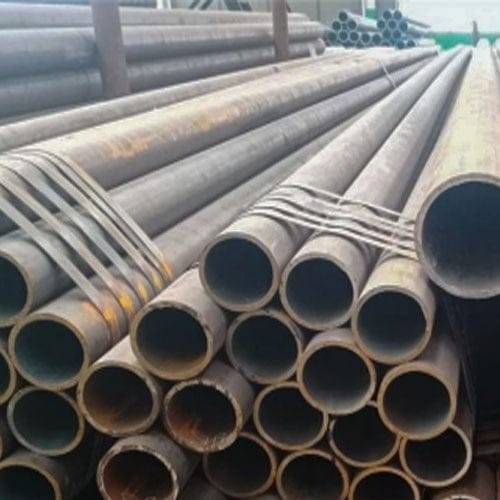Welcome to My Blog!
Before we dive into the content, I’d love for you to join me on my social media platforms where I share more insights, engage with the community, and post updates. Here’s how you can connect with me:
Facebook:https://www.facebook.com/profile.php?id=61559060896490
Now, let’s get started on our journey together. I hope you find the content here insightful, engaging, and valuable.
Table of Contents
Introduction

In the world of energy transportation, reliability, strength, and compliance are paramount. One essential component that helps meet these demands is the API 5L line pipe. This highly standardized pipeline product is widely used in the oil and gas sector due to its consistency in quality and ability to withstand harsh environments.
This comprehensive guide explores the applications, specifications, manufacturing process, and advantages of 5L API line pipe. Whether you’re a procurement specialist, project engineer, or simply researching pipeline solutions, this article will provide the knowledge you need to make informed decisions.
What is API 5L Line Pipe?
API 5L line pipe is a steel pipeline product designed for the transportation of oil, gas, and water. Regulated by the American Petroleum Institute (API), the specification defines the mechanical, chemical, and testing requirements that manufacturers must meet.
API 5L line pipe is available in two product levels:
- PSL1 (Product Specification Level 1): Basic requirements for general pipeline use.
- PSL2 (Product Specification Level 2): Includes additional requirements for chemical composition, mechanical properties, notch toughness, and non-destructive testing.
The 5L API line pipe standard covers a wide range of grades from B to X100, where higher numbers denote higher strength.
Key Features of API 5L Line Pipe
Strength and Durability
API 5L line pipe is known for its high tensile strength and resistance to stress corrosion cracking. These attributes make it ideal for long-distance transmission pipelines operating under high pressure.
Compliance and Certification
Each pipe undergoes rigorous testing to ensure it complies with API standards. Certification provides buyers with confidence in the material’s consistency and performance, especially for critical infrastructure.
Versatility
API 5L line pipe comes in both seamless and welded forms and supports a variety of coatings to extend its lifespan. It is used in both onshore and offshore applications.
API 5L Line Pipe Grades Explained
API 5L line pipe grades range from B (basic) to X100 (high-strength). Below is an overview of commonly used grades and their properties.
| Grade | Yield Strength (MPa) | Tensile Strength (MPa) | Typical Applications |
|---|---|---|---|
| B | ≥ 245 | 415 – 760 | Water and low-pressure pipelines |
| X42 | ≥ 290 | 415 – 760 | Low to medium-pressure services |
| X52 | ≥ 360 | 460 – 760 | Gas and crude oil pipelines |
| X60 | ≥ 415 | 520 – 760 | Cross-country pipelines |
| X70 | ≥ 485 | 570 – 760 | High-pressure transmission lines |
| X80 | ≥ 555 | 625 – 830 | Deepwater and arctic environments |
Manufacturing Process of API 5L Line Pipe
Raw Material Selection
High-grade steel is selected and prepared to ensure uniformity in chemical composition. This step is critical to achieving the mechanical properties specified in the API 5L standard.
Pipe Forming
Depending on the final product, the pipe is formed using seamless or welded manufacturing processes. Seamless pipes are preferred in high-stress applications due to the absence of weld seams.
Heat Treatment
To improve toughness and strength, the pipes are heat-treated according to required specifications. Normalizing, quenching, and tempering may be used.
Quality Inspection
Each 5L API line pipe undergoes a series of tests:
- Hydrostatic testing
- Ultrasonic inspection
- Charpy impact testing (PSL2)
- Dimensional verification
- Surface inspection
Applications of API 5L Line Pipe
5L API line pipe is used across a wide range of industries and environments:
- Oil and Gas Pipelines: Transports crude oil, natural gas, and refined products over vast distances.
- Petrochemical Plants: Supports complex processing systems involving corrosive materials.
- Offshore Platforms: Designed to withstand saline water and extreme environmental conditions.
- Hydraulic Systems: Provides high-pressure capabilities needed in hydraulic fracturing.
- Municipal Infrastructure: Used in water supply and wastewater treatment projects.
Choosing the Right API 5L Line Pipe for Your Project
Determine the Pressure and Temperature Requirements
Your application’s pressure rating will influence whether you need PSL1 or PSL2, and which grade is most appropriate.
Select Between Seamless and Welded
- Seamless: Best for high-pressure, high-temperature use.
- Welded: More economical, suitable for many medium- and low-pressure applications.
Consider the Environment
Pipelines in cold or corrosive environments benefit from protective coatings and corrosion-resistant grades like X65 or X70.
Certification Needs
Some regions or projects may require full traceability and compliance documentation, making PSL2 the better choice.
Benefits of Using API 5L Line Pipe
Consistency and Quality
The strict requirements of the API 5L specification ensure that each pipe maintains consistent quality, reducing the chance of failure.
Cost-Effectiveness
Despite being a premium-grade product, 5L API line pipe offers excellent long-term value due to its durability and reduced maintenance needs.
Customization Options
Available in a variety of sizes, thicknesses, and grades, 5L API line pipe can be tailored to match any industrial need.
Reduced Downtime
The superior performance characteristics of 5L API line pipe help prevent leaks and ruptures, minimizing operational interruptions.
Installation and Handling Tips


- Proper Storage: Store in a dry, clean area to prevent corrosion.
- End Protection: Use end caps to avoid contamination and damage during transit.
- Welding: Use qualified personnel and procedures to maintain integrity, especially for PSL2 products.
- Inspection: Perform non-destructive tests before and after installation to confirm compliance.
Conclusion
API 5L line pipe offers superior strength, versatility, and sealing performance, making it the go-to choice for critical infrastructure in the oil and gas industry. From deep-sea rigs to desert pipelines, 5L API line pipe delivers unmatched reliability.
Looking to source high-quality 5L API line pipe for your next project? Contact us today and let our experts help you select the right grade and specifications.
FAQ
What does API 5L stand for?
API 5L refers to the American Petroleum Institute Specification 5L, which governs line pipes for oil, gas, and water transport.
What’s the difference between PSL1 and PSL2?
PSL2 includes additional chemical, mechanical, and testing requirements compared to PSL1, making it suitable for more demanding applications.
What coatings are available for API 5L line pipe?
Common coatings include 3LPE, FBE, and epoxy paints to enhance corrosion resistance.




